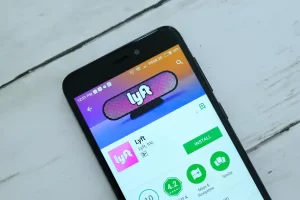Photo: Massachusetts State Senator Rebecca L. Rausch, lead sponsor of proposed legislation that would make it a crime for a ride share driver to engage in sexual activity with a passenger during a ride; via Wikipedia.
WCVB Channel 5 in Boston reported Saturday that a young woman identified as Cassidy says she followed every step recommended after reporting that her Lyft driver raped her, from contacting the Boston Area Rape Crisis Center to receiving a forensic examination and speaking with police. The Suffolk County district attorney’s office initially filed charges against the driver, and Cassidy says she felt supported and prepared to move forward. But prosecutors later informed her that they could not pursue the case because the evidence did not meet a specific requirement under Massachusetts law.
Cassidy’s experience reflects what local prosecutors describe as a recurring problem. Under Massachusetts law, it is a crime to engage in sexual activity with someone who is too incapacitated to consent, but prosecutors must also prove that the perpetrator knew or should have known the victim was too intoxicated or drug impaired to give consent. Prosecutors in the Suffolk County district attorney’s Domestic and Sexual Violence Unit say that in ride share cases, meeting that requirement is nearly impossible because the only direct witnesses are the driver and the rider, and the rider’s memory is often unreliable due to intoxication. They say this hurdle has repeatedly forced them to drop cases that they believe involved rape.
They point to other survivors who faced similar outcomes. One woman, who asked not to be identified, was found unresponsive in an Uber driver’s car with her pants pulled down and her feet on the dashboard after a bartender called a ride to get her home safely. The driver admitted to having sexual intercourse with her, but the first trial ended in a hung jury, and a second trial resulted in an acquittal. Another young woman reported waking up with signs of sexual assault after a Lyft ride, but prosecutors said they could not bring charges because they could not meet the knowledge requirement under current law.
Believing that Massachusetts law is preventing them from prosecuting rape cases involving ride share drivers, prosecutors helped develop a bill with State Senator Becca Rausch that would make it a crime for a ride share driver to have sexual intercourse with a passenger during the course of a ride. They say the proposal treats drivers as individuals in a position of trust, similar to laws that prohibit sexual contact between police officers and people in custody. The change would eliminate consent as a defense in these circumstances and allow prosecutors to charge cases that they currently cannot. Prosecutors say the goal is simply to ensure that drivers transporting vulnerable riders home cannot exploit them.
Lyft told WCVB that it supports the legislation and said its safety team works closely with victims and law enforcement. Uber said that nearly all trips occur without incident but that the company is committed to safety improvements and that even one incident is unacceptable. Both Cassidy and the anonymous survivor testified before lawmakers earlier this year. They say their cases failed not because of a lack of evidence but because of a flaw in state law. Cassidy says she wants lawmakers to understand the level of trust riders place in drivers and believes the law should protect riders in return. The other woman urged lawmakers to consider how vulnerable any loved one would be under similar circumstances.
Survivors can learn more about ongoing ride share assault litigation by visiting our Uber and Lyft lawsuit guides. If you are ready to explore your legal options, you can also request a free case review by filling out the confidential and secure form below.




